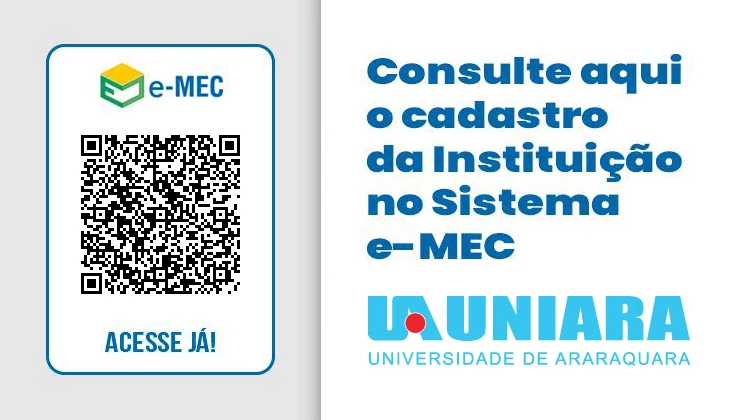NUPEDOR - Center for Rural Research and Documentation
For over 25 years, the Center for Rural Research and Documentation (NUPEDOR) has established itself as a national reference in research on rural settlements. The group currently coordinates two research and extension projects funded by CNPq and two additional research projects funded by Funadesp. In 2016, it concluded the technical-scientific report of a major scientific exchange project funded by CAPES and CNPq through the Casadinho/PROCAD Program.
The group includes five senior researchers from the Graduate Program, two associate researchers (one from UNESP – Presidente Prudente and one from FEAGRI/Unicamp), one postdoctoral researcher, three PhD researchers, one doctoral candidate, two researchers with master’s degrees, four PhD students from the Graduate Program in Territorial Development and Environment, six Master`s students from the same program, three undergraduate research fellows, and two technical support fellows.
Several milestones reflect the group`s academic maturity: the completion of Dr. Thauana Paiva de Souza Gomes’s PhD in the Graduate Program in School Education at UNESP Araraquara (2013); the admission of technical support fellow Ana Helena Lopes dos Santos to the PhD program in Public Administration and Government at Fundação Getúlio Vargas (FGV/SP); the invitation extended to technical and extension fellow Silvani Silva to coordinate the Agriculture Office at the Municipal Department of Economic Development in Araraquara; and postdoctoral researcher Henrique Carmona Duval’s appointment as Assistant Professor at UFSCar. Three graduates from the master’s program in Territorial Development and Environment are now PhD candidates in the same program with PROSUP/CAPES scholarships, and one is pursuing a PhD at UNESP - Presidente Prudente.
The group prioritizes themes such as rural settlements and regional/territorial development, public policies for rural areas, sustainable family farming, social technologies, and technological validation, among others.
Two ongoing projects are especially noteworthy:
“Participatory Research and the Construction of an Agroecological Proposal for Family Farming in the Central Region of São Paulo State", funded by CNPq, aims to establish an Agroecology Center within the graduate program. This project includes both research and outreach activities in rural settlements and traditional family farming areas in the region, such as: creation of experimental areas for technological validation; agroecological practice courses and agroforestry systems; “mini caravans” with elementary school students to experience agroecological production; support for formal and informal organizations in settlements; assistance in establishing two Social Control Organizations for organic certification; and the creation of a healthy food market at the university, involving the academic community, rural producers, and civil society.
"30 Years of Rural Settlements in São Paulo: An Assessment of Contradictions, Barriers, and Perspectives", funded by a CNPq Research Productivity Grant (Level 1A), focuses on compiling extensive data on rural settlements since Brazil’s redemocratization and updating current strategies and public policies for rural development.
These projects exemplify the growing integration between undergraduate and graduate education, as many undergraduate students involved in research and outreach activities have gone on to enroll in graduate programs. NUPEDOR has become a national reference in the study of Rural Settlements, hosting a biennial National Symposium funded by agencies such as CAPES, CNPq, FAPESP, NEAD/MDA, and INCRA/SP. The group is also responsible for publishing the biannual academic journal Retratos de Assentamentos, which reached its 20th volume in 2017. That year, the journal launched its online edition and was indexed in important databases, significantly increasing its visibility and accessibility.
NPDL - Center for Research and Studies in Local Development
The Center for Research and Studies in Local Development and Environment (NPDL/Uniara) was established in 2001 under the Graduate Program in Regional Development and Environment. Since 2005, it has been part of the CNPq Research Groups Directory in Brazil
The Center was designed to work across multiple fronts, aligned with the immediate interests of participating graduate researchers and students. Its priorities include:
- Socioeconomic and environmental analysis of territories and production networks to assess endogenous development potential;
- Contributing to the debate and proposal of shifts from traditional development models toward more integrated, sustainability-oriented strategies;
- Providing tools to support management and intervention strategies that promote new development models;
- Transferring research-based knowledge to professionals working in regional municipal administrations.
Since 2016, under the coordination of Prof. Dr. Helena De Lorenzo, the NPDL team, in partnership with UNESP Araraquara, has worked on mechanisms for knowledge and technology transfer to micro and small enterprises through: a) the Local Development Observatory; b) management of the Araraquara Business Incubator; and c) the project "Network of Instruments and Support for Local Development." The group`s efforts have provided statistical data and supported deeper understanding of local and regional production structures. Results can be accessed at: www.brasilproximocentropaulist.com.br.
Researchers involved in the group include: Prof. Dr. Luiz Fernando Oriani Paulillo, Prof. Dr. Luiz Manoel Camargo Almeida, and Prof. Dr. Zildo Gallo (Uniara); Prof. Dr. Sergio Azevedo Fonseca and Prof. Dr. Ricardo Augusto Bonotto Barbosa (postdoctoral fellow - UNESP Araraquara); Geralda Cristina Ramalheiro and Irene Carvalho De Lorenzo (research assistants); as well as undergraduate and graduate students. Each year, undergraduate members also organize and manage Uniara’s Scientific Initiation Congress.
CEAM - Environmental Studies Center
Coordinated by Prof. Dr. Guilherme Rossi Gorni and Prof. Dr. Maria Lúcia Ribeiro, the Environmental Studies Center (CEAM) includes faculty members Dr. Leonardo Rios, Dr. Vanessa Colombo Corbi, and Dr. Juliano José Corbi, along with undergraduate students from various programs.
CEAM, a supplementary unit of Uniara, focuses on technical-scientific work and support for environmental policies. Created in 1999 and integrated into the Graduate Program in Territorial Development and Environment in 2002 (based on CAPES recommendations), CEAM plays a key role in connecting teaching, research, and extension activities and in integrating undergraduate and graduate programs.
CEAM’s research contributes to the development and dissemination of studies by the Environmental Indicators research group. The group addresses environmental monitoring and the systematization of ecological sustainability indicators. Its scientific initiation, master’s, and doctoral projects focus on:
- Assessing water quality in urban watersheds in São Paulo state;
- Developing and applying ecotoxicological indicators in regional agricultural systems;
- Evaluating pesticide toxicity using terrestrial bioindicators;
- Studying the impact of agricultural practices on regional biodiversity;
- Assessing environmental quality of reservoirs and conservation units using bioindicators.
Results are presented at national and international academic conferences. CEAM maintains academic collaborations with the Department of Hydraulics and Sanitation at the São Carlos School of Engineering (EESC/USP), the Biology Department at the Federal University of Triângulo Mineiro (UFTM-Iturama), and the Aquatic Communities Division (ELHC) of the São Paulo State Environmental Company (CETESB). CEAM also organizes academic events, especially the annual Forum on Territorial Development and Environment.









